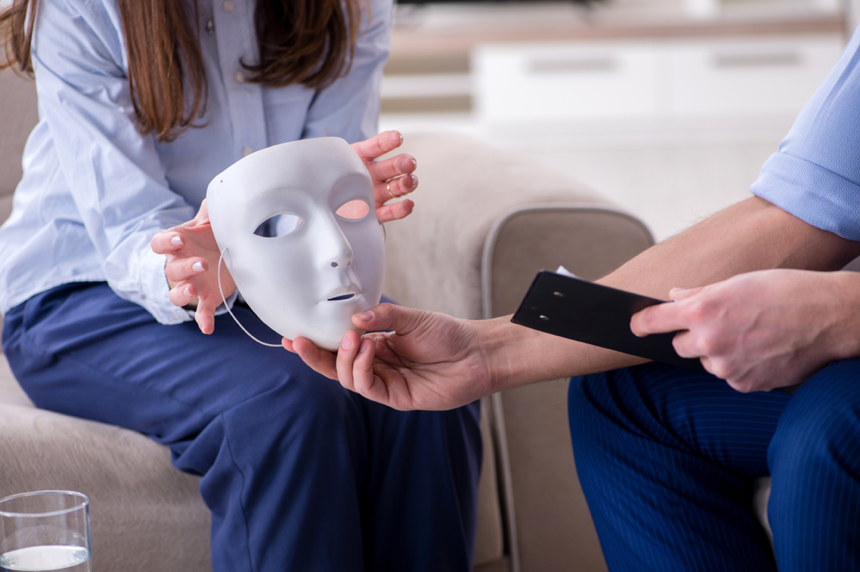The Core Foundations of Real Love and True Intimacy – Part 2: Trust

There are those moments in every relationship when you may be looking into your partner’s eyes and wondering if you can trust them with your inner world.
The ability to trust ourselves and our partner is the true cornerstone – and most important pillar – upon which to build a foundation of love and intimacy. The ability to experience trust in our partner is the primary reason that love can flourish.
Without trust, love simply cannot survive. Oh, the relationship may last for many years, even a lifetime. And just because you’ve been married to the same person for decades doesn’t mean that one or both of you trust the other.
But if there is a lack of trust between two people, the quality of that love is, at best, very poor.
With trust, our communications are easier. We can resolve the inevitable conflicts that even the best of relationships will encounter. With trust, we can more easily assume our partner’s goodwill, even if we don’t always agree.
With trust, we can share our inner world without fear of being ridiculed, shamed, embarrassed, or abandoned. Trust allows us to share the most intimate of our thoughts and emotions. We can be our true authentic selves at any given moment. Trust enhances our freedom to be who we are. To trust is to be liberated, no matter the outcome.
What is trust?
Trust is that feeling that simply says, “At this moment I feel completely safe with you.”
Trust equals safety and that is something we all want to feel at our core. And that is why the ability to feel trust is the absolute most important building block in any relationship. The moments in our lives when we feel the most insecure, sad, hurt, confused, and scared are the very moments when we need to feel safe.
Trust is not that romantic feeling that says everything is “ok” or naively believing that “he/she would never hurt me.”
Ask yourself this question: How could you possibly know that at the beginning of a relationship when everyone is putting their best foot forward and at a time when most people are often not quite prepared to share their inner world?
Your belief, which you may or may not be able to trust, will likely be challenged. What is absolutely true is that sometimes feelings of love are simply not enough. This is particularly true at the beginning stages of falling in love.
Real trust is knowing that there are going to be problems, but that you have a partner who is truly committed to communicating openly and honestly, no matter how difficult things may get.
At the beginning of a relationship, those wonderful love hormones may tell you that you are feeling wonderful, in love, and you may feel like you can trust them, but love hormones have really no way of knowing for sure whether or not you can trust your new lover…even if you feel that you can.
You may feel what I call “in love trust” at the beginning, but real trust happens over time.
In other words, trust must be earned and that takes time. The ability to trust your partner – and yourself – must be tested. Faith in your ability to trust your significant other needs to be earned when facing situations that require openness and vulnerability. This requires that you intentionally live to find ways to establish and build trust over time.
It really comes down to this: true love is mature love and true love means that you trust your partner and that you feel safe with them. (As a side note, when I speak of mature love, it has nothing to do with anyone’s age, but more that it’s not a new romantic relationship, but one where the couple has worked through most of their conflicts and power struggles over time.)
What are some signs that you can trust your partner?
Here are some common signs that trust exists in your relationship:
- You genuinely care about their well-being.
- You generally like who your partner is.
- You are willing to be courageous and tell your partner the truth, even if
you are scared. - You are open about your finances.
- You strive to be an attentive lover. You want to please your partner.
- You cherish your partner and show them the ways that you do.
- You agree that knowing the truth is the cornerstone of your relationship.
- You know that having eye contact is a sign of trust.
- You are completely fine with handing your phone over to your partner.
- You agree to be monogamous because you want to be monogamous.
- You have rules and agreements as a couple that you both abide by.
- You can express your deepest emotions.
- You can admit when you have made mistakes.
- You are confident in your love for each other.
How can you develop trust in a relationship?
Here are some tips to help you develop trust in your relationship:
- Ask your partner if there is any unfinished business between the two of you. Opening the door to anything that may be causing doubt can be a
wonderful way to build trust. - Acknowledge when you have made a mistake. This requires a higher degree of humility and maturity.
- Express genuine remorse when you have hurt your partner.
- When in a conversation with your partner, simply reflect back to them what you hear them saying. This sends them the message that they can trust
that you are genuinely interested in what they have to say right now. - Communicate as openly and honestly as you possibly can.
- Take risks. Say things that you have never said before. You really can take off your mask. It’s ok.
- Assume goodwill and that your partner may be able to handle more than what you give them credit for.
- Make sure to do everything you can to keep your promises.
- Make sure that you physically touch in a loving way each and every day.
- Do what you can to be a calming influence.
- Be vulnerable, courageous, kind, self-aware, and grateful for your partner.
There are very specific ways of thinking and behaving that couples need to learn in order to both express love and receive love. Knowing these tools is absolutely foundational to enjoying happy and healthy relationships. This article is the third in my new six-part series: The Core Foundations of Real Love and True Intimacy. You can find other posts here:
Introduction
Part 1: Vulnerability
Part 2: Trust
Part 3: Courage
Part 4: Self-Awareness
Part 5: Kindness
Part 6: Gratitude
I hope that you have found this article helpful. As you can see, the ability to deeply trust in a mature way requires an intention to live an authentic life. It’s not always so easy and takes some work. If this is an area you would like to explore more, feel free to contact me for a free 15-minute phone consultation to see if I am a good fit for what you need. I am more than happy to help you in any way I can.



















The Core Foundations of Real Love and True Intimacy – Part 5: Kindness | Gary Brown
[…] of the core foundations of love and intimacy, that I have outlined in this series: vulnerability, trust, courage, and self-awareness. These are certainly the cornerstones of a fulfilling relationship […]
The Core Foundations of Real Love and True Intimacy – Part 3: Living Courageously | Gary Brown
[…] Introduction • Vulnerability • Trust • Self-awareness (coming soon) • Kindness (coming soon) • Gratitude (coming […]
The Core Foundations of Real Love and True Intimacy – Part 1: Vulnerability
[…] a healthy relationship, both partners have a sense of connection and trust. Vulnerability creates emotional (and sometimes physical) intimacy and a closeness because you can […]
The Core Foundations of Real Love and True Intimacy – Part 6: Gratitude | Gary Brown
[…] of the core foundations of love and intimacy, that I have outlined in this series: vulnerability, trust, courage, self-awareness, and […]
Recovering from an Affair: Learning How to Cope
[…] they feel that they need right now. This will likely take quite some time as this level of breaking trust is extremely difficult to get […]